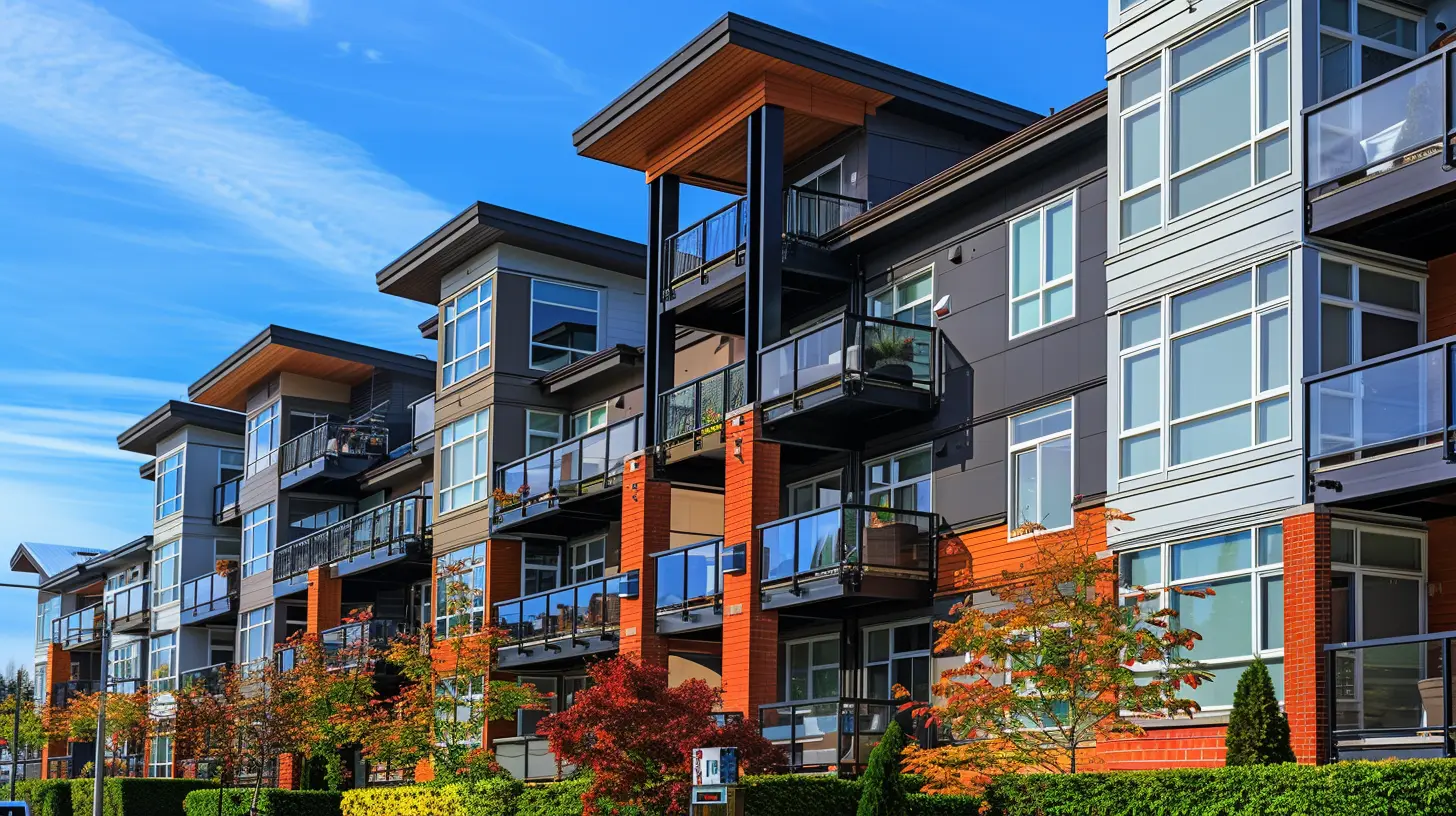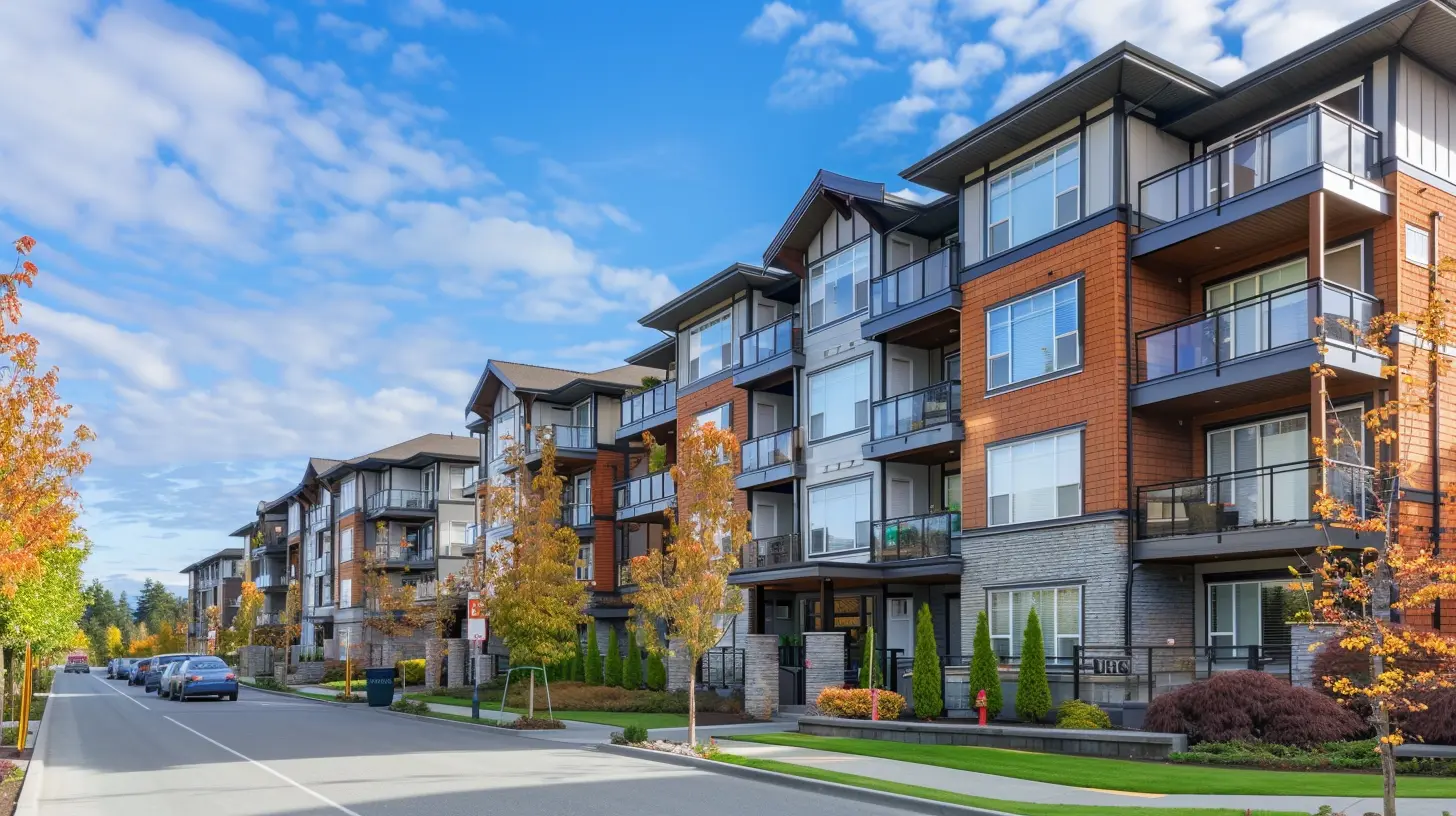Investing in a Luxury Apartment: What You Need to Know
21 June 2025
Investing in a luxury apartment is a dream for many—whether it’s for personal use or as an asset that appreciates over time. These high-end properties are not just about stunning views and top-tier amenities; they also come with unique challenges and considerations. If you’re planning to put your money into a luxury apartment, you need to go beyond just looking at price tags.
So, what should you watch out for before making such a significant investment? Let’s break it down step by step.

1. Understanding What Makes an Apartment "Luxury"
Not every expensive apartment qualifies as luxury. It’s not just about high prices—it’s about top-notch quality, exclusivity, premium finishes, and state-of-the-art amenities.Here are some key features that define a luxury apartment:
- Prime Location – Think waterfront properties, posh city centers, or exclusive suburban enclaves.
- High-End Finishes – Marble countertops, smart home technology, heated floors, custom cabinetry—you get the idea.
- Privacy and Security – Gated communities, 24/7 security, private elevators, and concierge services.
- Premium Amenities – Gym, spa, infinity pools, private parking, rooftop lounges, and more.
If an apartment lacks these elements, it’s probably just an expensive home—not a true luxury property.

2. Is a Luxury Apartment a Good Investment?
Before you swipe your credit card (just kidding, you’ll probably need more than that), you need to ask yourself—does this make financial sense?Pros of Investing in a Luxury Apartment:
✅ High Appreciation Value – Prime real estate usually increases in value over time, especially in high-demand locations.✅ Better Rental Income – Luxury properties can fetch higher rents, attracting affluent tenants.
✅ Exclusive Market Demand – Less competition, as there are fewer luxury units compared to standard apartments.
✅ Prestige and Lifestyle Benefits – Owning a luxury property isn’t just about money; it also elevates your lifestyle.
Cons of Investing in a Luxury Apartment:
❌ High Initial Cost – The price tag is heavy. Be prepared for a hefty down payment and mortgage.❌ Maintenance Expenses – High-end properties come with costly upkeep—from security to landscaping and premium amenities.
❌ Market Volatility – Luxury homes are more susceptible to market fluctuations than mid-range properties.
❌ Difficult to Sell Quickly – Since luxury apartments cater to a niche market, selling them can take longer.

3. Choosing the Right Location
Think about it—would you rather own a luxury apartment in the middle of nowhere or in a high-demand urban hub? Location is everything in real estate, and for luxury properties, it’s even more critical.Key Factors to Consider When Choosing a Location:
- Proximity to Business Districts – If professionals and executives are your target market, pick a location close to major offices or financial centers.- Accessibility – Good infrastructure, ease of transport, and connectivity to major roads add value.
- Neighborhood Status – Some areas are recognized as “luxury zones.” Buying in these areas ensures future appreciation.
- Nearby Amenities – High-end restaurants, shopping districts, top-rated schools, healthcare facilities, and entertainment hubs matter.
- Growth Potential – Look at future development plans in the area. Rising infrastructure and new projects can boost property values.

4. Financing a Luxury Apartment
Unless you have a mountain of cash sitting in your bank account, you’ll likely need financing. But here’s the thing—lenders treat luxury real estate differently.Key Financing Options:
- Traditional Bank Loans – If your credit score is strong, a mortgage might be your best bet.- Jumbo Loans – Since luxury properties exceed conventional loan limits, banks offer jumbo loans tailored for high-value assets.
- Private Lending – Some investors prefer private lenders for better flexibility, though interest rates might be higher.
- Developer Financing – Some luxury developers provide in-house financing or payment plans, which can be a good deal.
Before you commit, compare interest rates, loan terms, and repayment flexibility. A high-value loan means higher risks, so crunch the numbers carefully.
5. Evaluating the Developer and Construction Quality
A luxury apartment is only as good as the hands that built it. Buying from a reputed real estate developer reduces risks.How to Assess the Developer’s Credibility:
🔹 Track Record – Research their previous projects. Check if they were delivered on time and met promised specifications.🔹 Financial Stability – A financially sound developer is less likely to abandon the project midway.
🔹 Reviews and Reputation – What are previous buyers saying? Online reviews and testimonials can give you insights.
🔹 Legal Clearances – Verify that the developer has the necessary permits and approvals.
Even if the apartment looks stunning in brochures, conduct in-person visits or hire an inspector to assess construction quality before signing on the dotted line.
6. Understanding the Hidden Costs
The listing price is just the beginning. Prepare for additional costs that can add up quickly.Common Hidden Costs in Luxury Real Estate:
💰 Property Taxes – Higher value equals higher tax obligations.💰 Maintenance and HOA Fees – Premium properties come with steep homeowners’ association fees.
💰 Insurance – Luxury apartments need high-value insurance coverage.
💰 Interior Design & Furnishings – You’ll want high-end furniture and decor to match the property’s vibe.
Always account for these expenses in your budget to avoid financial surprises.
7. Renting vs. Reselling: Planning Your Exit Strategy
Any smart investor has an exit strategy in place. What’s yours?🔹 Renting It Out – Luxury apartments attract high-end tenants, making them excellent rental properties. However, finding reliable tenants who can afford premium rents might take time.
🔹 Reselling for Profit – If you plan to sell in the future, think long-term and assess market trends. Some luxury properties appreciate quickly, while others remain stagnant.
Regardless of your strategy, always keep resale potential in mind before purchasing.
8. Legal and Documentation Aspects
Real estate transactions involve tons of paperwork, and missing a crucial document can cause significant issues.Important Legal Checks:
✅ Ensure there are no legal disputes related to the property.✅ Verify the title deed to confirm ownership.
✅ Check zoning laws and building regulations.
✅ Review the builder-buyer agreement carefully.
If you're unsure about legalities, hire a property lawyer to avoid any potential pitfalls.
9. Market Timing: When to Invest?
Timing matters in real estate. Buying during a market downturn can get you better deals, while purchasing in a booming market might mean higher prices but quicker appreciation.Best Times to Invest in Luxury Real Estate:
✔ When interest rates are low.✔ When developers offer attractive deals or discounts.
✔ When the market is in a buyer’s phase, meaning more supply than demand.
Research the current market conditions before making your move.
Final Thoughts
Investing in a luxury apartment isn’t just about owning a fancy home—it’s a financial decision that requires careful planning. From choosing the right location to securing smart financing and understanding the hidden costs, every step matters.So, is a luxury apartment the right investment for you? If you have the patience, financial backing, and a solid strategy, it can be an incredible asset in your portfolio. But if you're looking for quick profits, the luxury real estate market might not be the best fit.
Take your time, do your homework, and make an informed decision. After all, luxury isn’t just about spending—it’s about making smart investments.
all images in this post were generated using AI tools
Category:
Luxury ApartmentsAuthor:

Elsa McLaurin
Discussion
rate this article
2 comments
Wolf Becker
Investing in a luxury apartment can offer significant returns, but it's essential to understand the market dynamics. Focus on location, amenities, and potential rental demand. Conduct thorough research and consider long-term trends to ensure a wise investment that aligns with your financial goals.
October 29, 2025 at 12:12 PM

Elsa McLaurin
Absolutely! Understanding market dynamics, location, and amenities is crucial for making a sound investment in luxury apartments. Thorough research and awareness of long-term trends are key to aligning with your financial goals. Thank you for highlighting these important factors!
Xeno Carrillo
What hidden costs should buyers consider beyond the purchase price?
June 21, 2025 at 4:22 AM

Elsa McLaurin
Buyers should consider maintenance fees, property taxes, insurance, potential homeowners association (HOA) dues, and costs for renovations or upgrades when investing in a luxury apartment.


